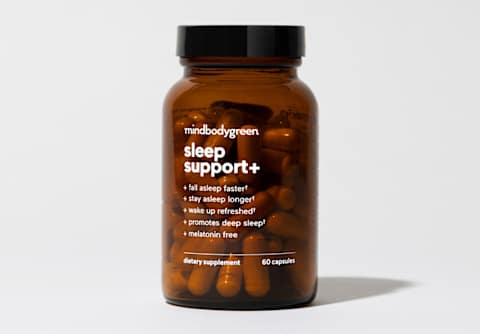Advertisement
A No-Fuss 3-Step Trick To Identify Your Optimal Skin Care Routine, From A Psychologist


When you craft your optimal skin care routine—you know, face wash, treatment, moisturizer, oil, eye cream, the works—the obvious experts to turn to are dermatologists and estheticians. (They have the skin health know-how and training after all.) Or perhaps you'll turn to your favorite beauty influencer, writer, or editor. No, we haven't gone through the medical schooling, but the good ones do have plenty of experience and the resources to find the answers to the questions they don't yet know.
One of the more unexpected places to turn to for advice? Behavioral psychologists, like Perpetua Neo, DClinPsy, who specializes in helping executives, perfectionists, and type-A individuals. While her advice isn't ingredient- or product-specific—nor does she claim it to be—she is an expert at helping people form healthy, optimal habits. And one underrated aspect of taking care of your skin is developing and keeping your practices.
In a recent episode of Clean Beauty School, Neo and I spoke about how hard it can be to create a routine that works for you—especially when you have high standards and lofty goals for your skin care regimen. Well, in the episode, she had great advice about editing a program that will help you target specific concerns, be gentle to your precious skin, and will keep you from going overboard on products that don't serve you.
A no-fail 3-step trick to finding your perfect skin care routine.
Here's one of the biggest mistakes I see people make with their skin care routines: They want to do too much. If you're a type-A or wellness-minded folk (like Neo's clients—and if you're reading this website, I wager you might be, too), it's a common downfall. Here's how to avoid that trap and build a smart routine that supports your skin:
Zero in on your exact needs, one concern at a time.
"You need to get specific," she says. "You can't identify exactly what you need to do if you don't know what you want." Again, I see this problem all of the time. People don't always understand or see the actual state of their skin. For example, those with acne-prone skin tend to mistake everything for a breakout—when, in fact, it might be rosacea or even an allergic reaction to a potent active. Or you may complain about texture and think that means you need to target sagging—when, in fact, your skin may be dehydrated. Or people will simply come with general, vague goals: That's not helping you in the long run. Identify your exact needs, and go from there.
"Oh, and let's make this clear: If you are really stumped on what your skin concerns are, visit a professional rather than just guessing and scaring the hell out of yourself," she says. "So if you are really in conflict with your skin, then you're going to look in the mirror and you're going to see something worse than what's there. You need someone absolutely objective to help you with that."
Rank each concern on a scale of 1 to 10.
Take some time to evaluate what your top concerns are. "And rank it on a scale of one to 10," she says. "It's about setting up a framework...that can help you work through your goals—which is important for perfectionists and type-A people. You may say your dullness is an eight out of 10, so you can strive to get it down to six, four, two. Then you can look to find another goal."
You may feel that you struggle with under-eye bags, clogged pores, and dullness. But which one of these is the one you care about most urgently? Are there any that you simply think you have—but when you really tend to your skin you realize it's not that bad? After spending time with yourself, you may find the things you find bothersome really aren't that way at all. "This keeps you from having a big, unattainable goal like 'perfect skin.' Having achievable, moving goals is actually going help your skin," she says.
Tackle one concern at a time.
As Neo notes, it's important that you start with the most pressing and work your way down the list as you see fit. Don't feel like you need to fix every skin concern all at once—that's a recipe for an overloaded 17-step routine with too many conflicting actives.
"We're just keeping it one step at a time, making it simple," she says. And that's how you not only form one good habit—but several good habits in a row, over time. That way, those habits are likely more effective and more likely to stick!
The takeaway.
Skin care isn't just about what ingredients or products you use—it's about how you use them and with consistency. If that's where you struggle (you're not alone!), this trick may just be what you're looking for.
If you're looking for more engaging beauty conversations, listen to our new beauty podcast, Clean Beauty School. Subscribe on iTunes, Google Podcasts, or Spotify.
